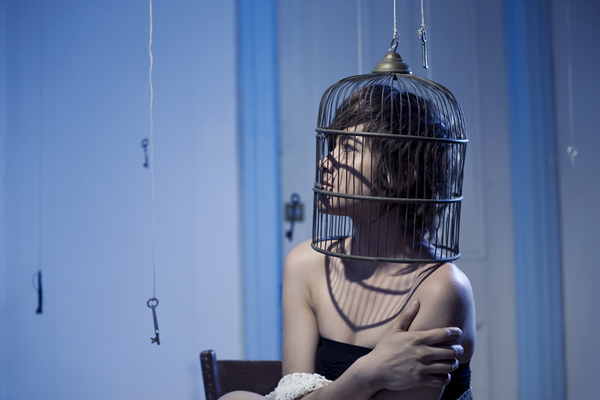Earlier this year, unarmed Black teenager Michael Brown was fatally shot by police officer Darren Wilson; earlier this month, a grand jury refused to indict Wilson of a crime in Brown’s death.
This above sentence is not partisan. It is not fantastic. It is not subjective. It is a factual description of the events in Ferguson over the last year.
Yet, this description — which reflects the general coverage of the Michael Brown shooting and its aftermath — seems to bother some within mainstream America. That’s because Michael Brown simply doesn’t fit neatly into one of the several pre-defined tropes available to Black men, or to people of colour, in general.
This description chafes because, to them, there’s no such thing as Black humanity.
Throughout the conservative blogosphere and social media, we can find examples of people objecting to description of Michael Brown as simultaneously “Black”, “unarmed” and a “youth”. This is from a conversation I’ve been having on Facebook today:
When challenged (which is what I did when the above comment appeared in my feed), these (predominantly conservative) folks elaborate: their issue is that the phrase “unarmed Black youth” is inaccurate. In their words, Michael Brown was not an “innocent little child”. In their words, Michael Brown, was not a “little boy”. In their words, Michael Brown was not a “goody two shoes”. He was “no angel“.

The undistorted facts are that Michael Brown was Black; he was a teenager; he was big for his age (although a scant two inches taller than his killer); he was unarmed; and at the time of his death, he was not a criminal. To describe Michael Brown as an “unarmed Black youth” is not manufactured, it is factual.
Now, most conservatives will, at this moment, cite a host of additional details: the convenience store surveillance tape showing a purported robbery or assault (that was not reported by the store’s owner), or the elevated levels of THC in Brown’s system at the time of his death. Setting aside for a moment the (ir)relevance of these facts to Brown’s shooting death, the topic of this post is less whether or not Brown was “no angel”, and more why some can hear “unarmed Black teenager” and interpret it to mean “angel”.
For conservatives who take issue with the phrase “unarmed Black teenager”, the discomfort lies in the cognitive dissonance that comes with being forced to see Black humanity. Human nature is not constant perfection; it is a constant balancing act between our better angels and our personal demons. Humanity arises out of the struggle to maintain a principled goodness while punctuated with flashes of ugliness. There is no person in the world who has never sinned, never faltered, and never erred. Humanity is not the selective erasure of those moments, but in how they combine with our brighter moments to form a rich complex tapestry of a human life.
Too often we mistake privilege as mere economic power when privilege is also political: it describes too the power that comes with the freedom of being human. Privilege is the capacity to receive forgiveness for our inevitable moments of imperfection.
For Black people, and indeed for all people of colour, the absence of skin privilege means that this freedom of humanity is denied. There is no space for Black victims of police brutality to inhabit a role where “unarmed Black teenager” is a sufficient turn-of-phrase to describe the victim. Instead, for Michael Brown there are only two roles available, neither of them human: the “criminal thug” or the “innocent child”.
When the banality of Michael Brown’s ordinary teenaged life — music, marijuana, and college aspirations — reveal Brown to be neither straightforwardly thuggish nor innocently cherubic, conservatives lose their ever-lovin’ minds. They spin their wheels trying desperately to fit a square peg into a circular hole. They deplore the mainstream media whom they — and they alone — interpret as casting Michael Brown as a “goody two shoes”, a pejorative phrase that no one defending the humanity of Michael Brown has actually used.
They cannot handle the notion that Michael Brown was — quite simply and humanly — an “unarmed Black teenager”, and that his life — like the life of any human — is valuable, flaws and all. Instead, it is first of disconcerting importance that it be clarified publicly: which of the two stereotypes available to Michael Brown — “thug” or “angel” — did he embody?
I am reminded of my own experiences as an Asian American, and the stifling Orientalism that describes our day-to-day existence. The stereotypes of the Asian American community are a case study in extremes: the hyper-physical martial artist or the meek cubicle engineer; the cutthroat industrialist or the servile coolie; the dragon lady or the lotus blossum.
The same dynamic is true for all people of colour. The center is unavailable to us; it has already been defined by — and therefore reserved for — the Occidental. All that remains is navigation between the thin orbiting stereotypes that represent the extreme.
And so, Michael Brown can either be “angel” or “thug”; he can never be simply human.




